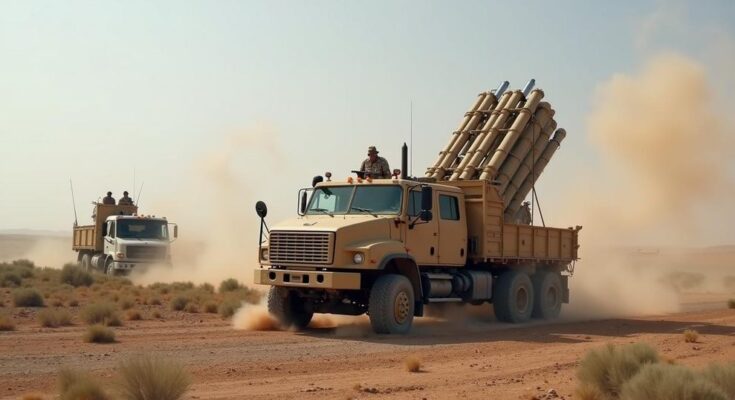In recent developments in the Israel-Lebanon conflict, Hezbollah launched a drone attack killing four Israeli soldiers, prompting U.S. military support through the deployment of a Thaad missile system. Prime Minister Netanyahu has called for the removal of UN peacekeepers from southern Lebanon. The UN has warned that attacks against its peacekeepers may qualify as war crimes as tensions escalate, resulting in an increase in civilian casualties in both Lebanon and Gaza.
The Israel-Lebanon conflict has escalated, highlighted by a recent Hezbollah drone attack that resulted in the deaths of four Israeli soldiers and left seven others severely wounded. This incident, described as retaliation for Israeli airstrikes on Beirut that killed 22, marks a significant development in the ongoing hostilities between the two sides. Concurrently, the United States has announced the deployment of a Terminal High Altitude Area Defense (Thaad) battery to Israel, along with American troops to operate the system. This decision follows warnings from Iran about U.S. military presence in Israel and reinforces the U.S. commitment to protecting Israel from ballistic missile threats. Prime Minister Benjamin Netanyahu has called for the immediate withdrawal of United Nations peacekeeping forces from southern Lebanon, citing their failure to prevent Hezbollah attacks. Moreover, the UN has condemned the recent assaults on peacekeepers, stating that such acts may constitute a war crime. As the situation unfolds, both Syria and Israel continue to exchange fire, while civilian casualties in Gaza rise due to ongoing Israeli airstrikes targeting militant positions.
The Israel-Lebanon conflict has deep historical roots, often flaring up in cycles of violence that involve various regional powers, including Hezbollah and Iran. The United States has traditionally been a key ally of Israel, providing military support and defense systems to counter threats from neighboring adversaries. Recent developments have intensified the situation, with a significant increase in military hostilities and a rising number of casualties among both Israeli forces and Lebanese civilians. The role of UN peacekeepers, designed to mitigate conflicts in the region, has come under scrutiny as tensions escalate, leading to calls for their withdrawal amidst claims of ineffective operations against Hezbollah. The intersection of geopolitical interests and local conflicts significantly complicates the prospect for peace in the area.
The ongoing conflict between Israel and Hezbollah, ignited by a deadly drone attack, reflects the fragile state of security in the region. The U.S. deployment of Thaad missile systems signifies a renewed commitment to Israel’s defense, while the calls for the withdrawal of UN peacekeeping forces highlight the contentious nature of their presence in Lebanon. As hostilities continue and casualties mount, the urgent need for diplomatic solutions becomes increasingly evident to alleviate the suffering of civilians caught in the crossfire.
Original Source: www.independent.co.uk




